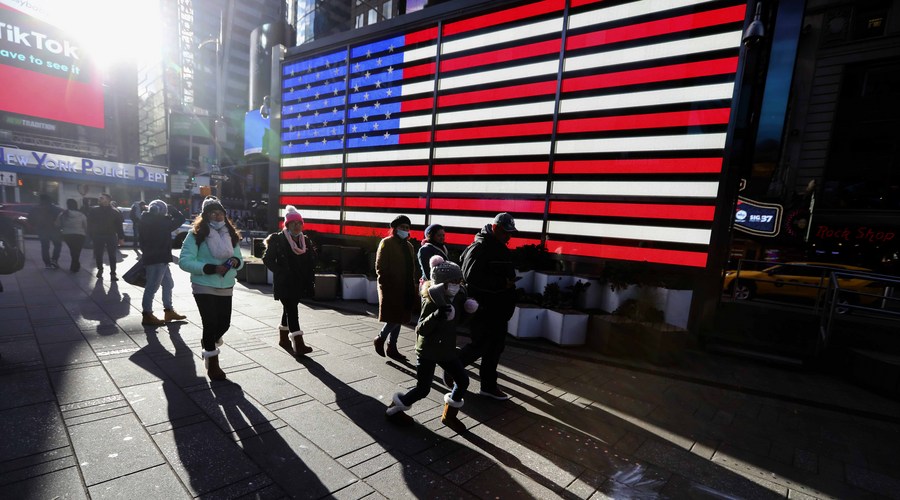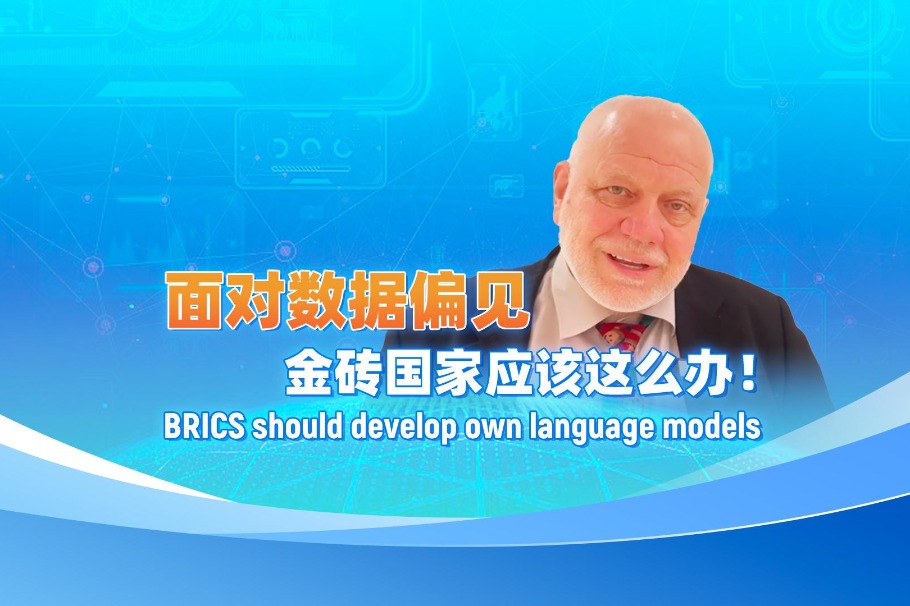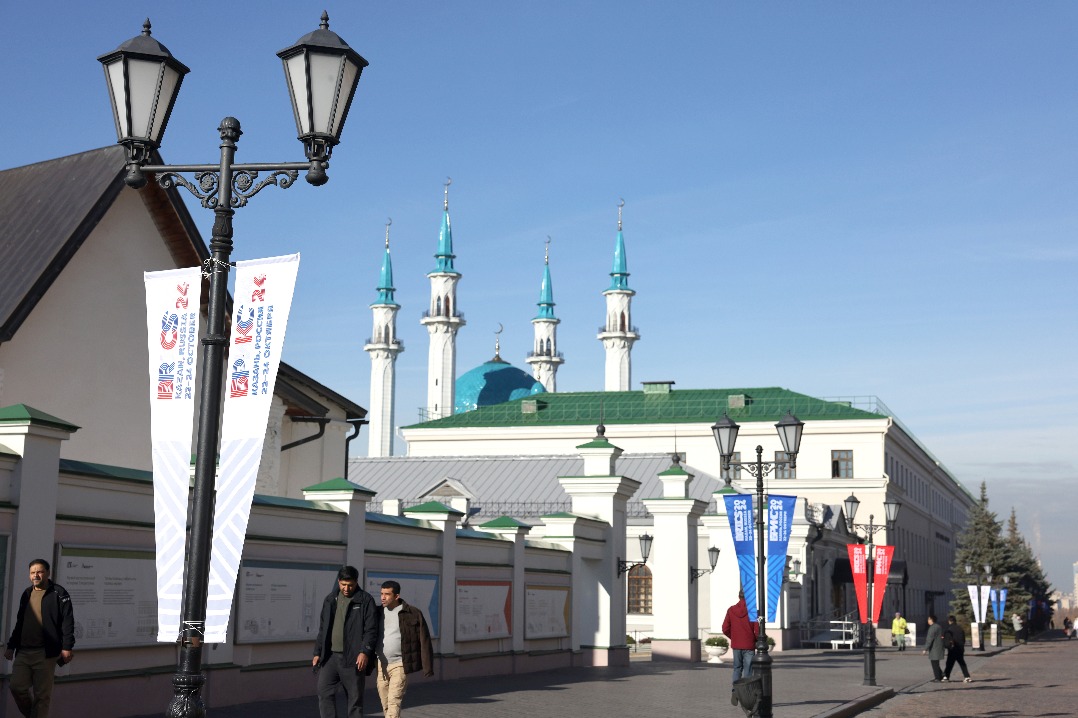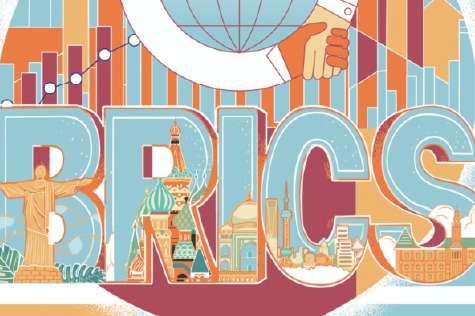No one-size-fits-all governance model


We don't know how long the United States' campaign against China's political system will last, but we do know that the most important bilateral relationship in the world is the one between China and the US.
The two countries need each other, and their cooperation is most certainly in the long-term interest of the world, not least because it can stop the formation of trade blocs and intensification of geopolitical competition, and instead help stabilize the global economy.
Both powers have the moral duty to work together to change the world for the better. But instead of deepening cooperation, their relations have deteriorated. This is one of the biggest problems the world faces today.
Next month will mark the first anniversary of the Beijing International Forum on Democracy, which emphasized that democracy is a shared value of humanity and that there is no "one-size-fits-all" democracy model.
The US says the world should be afraid of China and its political system, even though the US, despite being the world's sole superpower for more than three decades, has not worked on policies to further democratize international relations. In fact, it has been behaving frequently as an autocratic power.
The US identifies China as its main military, technological and political competitor. But in doing so, it tends to forget that China's political structure and democracy model have Chinese characteristics, and aggressively promotes US-style democracy as superior to Chinese and other political systems. As democracy the US is as any other democracy imperfect.
China has its own political system which is rooted in its culture and tradition, revolutionary history, and its success rests on delivering social goods to its citizens. And unlike the US, it believes a country should adopt a development model that suits it best. That's why, no matter how much the US interferes in China's internal affairs, it can't change China, though it can destabilize Sino-US ties by continuing to provoke Beijing on the Taiwan question or intensifying its "Indo-Pacific" strategy of one-upmanship.
Washington today identifies China as "the most consequential geopolitical challenge" to the US and the existing world order, but it knew China had a different political system when it established diplomatic ties with Beijing in 1979. So it is hard to believe that China having a different political system is the real reason why the US is desperate to contain China's rise.
It is clear that the US' global battle for "democracy" is focused on trying to weaken China, checking its technological advance even at the cost of dividing the world and threatening peace in the "Indo-Pacific" region. And all this is to ensure the US continues its global domination, both economically and strategically.
To contain China's rise, the US has also been trying to build an axis of countries, by claiming China's political system and the Communist Party of China pose "threats to the economic well-being and democratic values of the United States". However, the US' claim is a threat to China and global peace, because the US says the democratic forces fighting against "autocracy" are essentially anti-democratic.
It is also interesting to know that the US intends to realize its goals by alleging that China is half democratic and half authoritarian, a political version of half-man, half-bull Minotaur from Greek mythology. For the Joe Biden administration, China is democratic enough to cooperate with it in the fight against climate change, promoting sustainable development, and managing some global economic issues, but autocratic in trade, technology, and military development — the very areas in which the US wants to contain China.
China's basic approach to the US is democratic. China does not want to trigger a new Cold War, nor does it want the end of the World Trade Organization-led globalization. It doesn't view the US as a systemic rival either nor has it been working with other countries and global organizations to build an anti-US world order.
Beijing tends to maintain good ties with Washington. As President Xi Jinping said recently, China and the US must "find ways to get along", safeguard world peace and development, and cooperate in areas of common interest while managing competition in others.
China follows standard democratic norms in international relations and many countries, including some developed ones, see Xi as the most influential world leader. Also, China is committed to helping improve the world order and build a community with a shared future for mankind — and is against geopolitical divisions. But despite diplomacy acting as a shield against the Cold War mentality, it does not mean the current world order will become truly multipolar anytime soon.
And China knows that to develop a truly multipolar world order, it needs the support of the US. Looking from a long-term perspective, the US and China should improve bilateral relations, because both sides know that without doing so, they cannot tackle the myriad global problems. And since China and the US admire each other in many fieldsregardless of their ideological differences, the long economic war and the Russia-Ukraine conflict — it is hoped they will find a way to reboot their relations for the better.
Probably, the US will shed its hegemonic worldview one day and accept that in democratic international relations all countries are equal, and the world order is in balance.

The views don't necessarily reflect those of China Daily.
If you have a specific expertise, or would like to share your thought about our stories, then send us your writings at opinion@chinadaily.com.cn, and comment@chinadaily.com.cn.

































